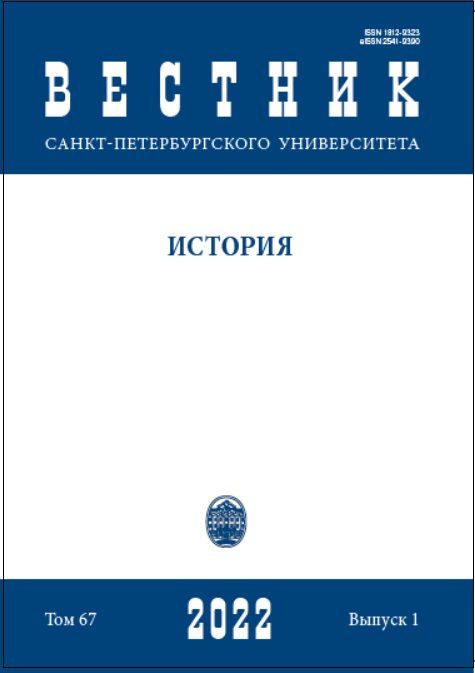The religious factor in the politics of the Spartan kings
DOI:
https://doi.org/10.21638/11701/spbu02.2022.105Abstract
The purpose of this work is to show how exactly the Spartan kings used the religious factor in their politics. The author pays special attention to the cases of the interaction of the Spartan kings with the Delphic priests, and the analysis of the results of these relations. The families of the Spartan kings very early established close contacts with Delphi. Already Lycurgus, who most likely belonged to the Agiads, was so close to the Delphic priests that he was able to obtain from them full approval for his legislative reforms. The author noted that the Agiads were more influential in Delphi than the Euripontids. It can be explained by the fact that representatives of the Agiads, as an older royal family, very early acquired friends in Delphi and were able to pass on these relations to their descendants. The author concludes that, especially in the 5th century, the Spartan kings had great authority in Delphi. They managed to carry out a series of radical political actions with the help of priests, in one case depriving an undesirable co-ruler of power, in the other case – restoring an exiled king to the throne, in the third case – the restoration of the reputation of an illegally repressed and executed member of the royal family. The author tried to show that Delphi, in controversial cases, as a rule, were on the side of the kings in defending of their interests. The illegal methods by which the kings acted at Delphi suggest that they differed greatly in their mentality from their fellow citizens.
Keywords:
Delphic oracle, Sparta, Spartan kings, Lycurgus, Cleomenes I, Pleistoanax, Lysander, Herodotus, Thucydides, Xenophon, Plutarch
Downloads
References
Downloads
Published
How to Cite
Issue
Section
License
Articles of "Vestnik of Saint Petersburg University. History" are open access distributed under the terms of the License Agreement with Saint Petersburg State University, which permits to the authors unrestricted distribution and self-archiving free of charge.





